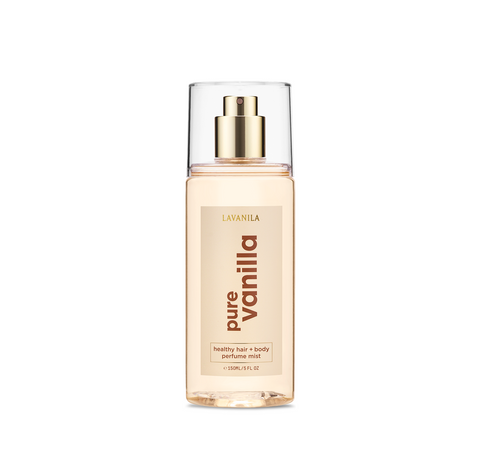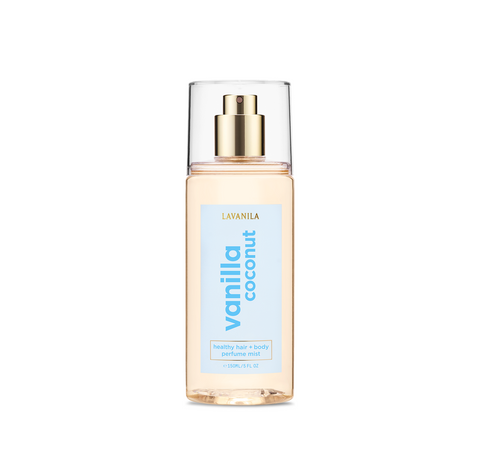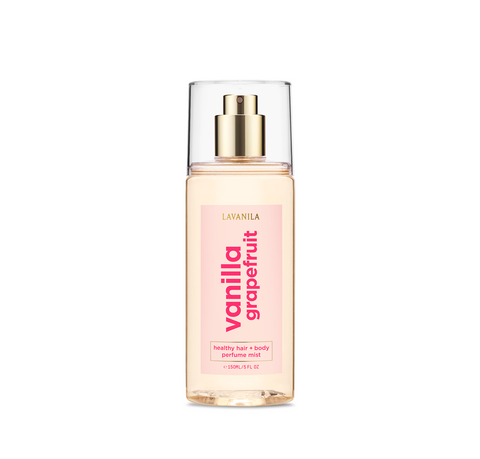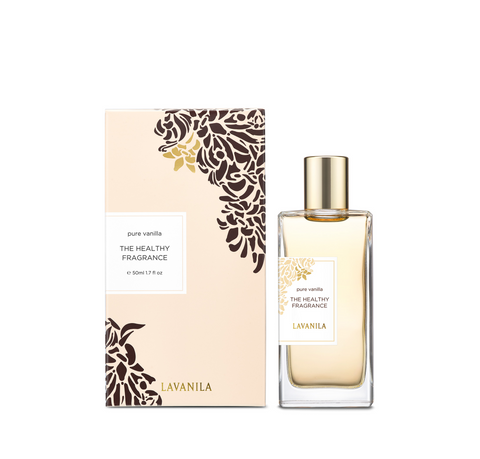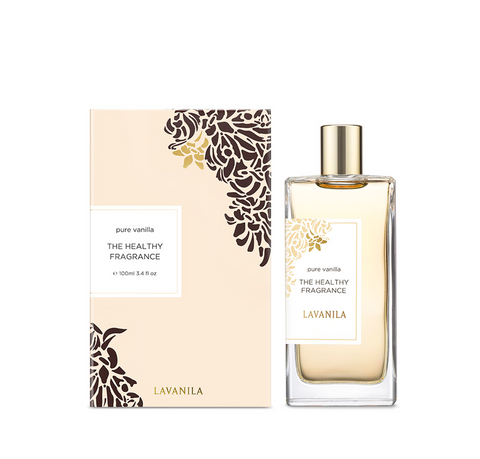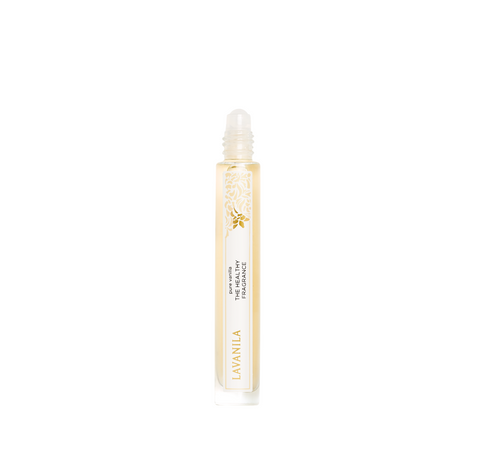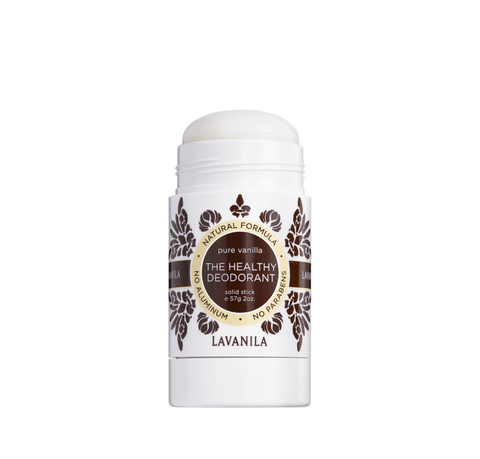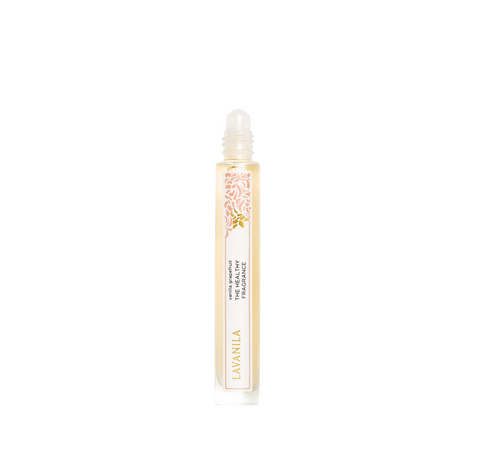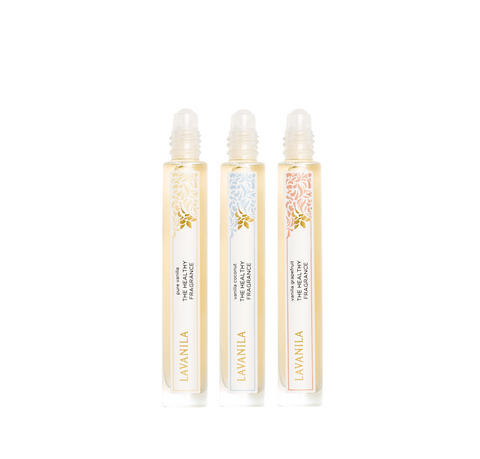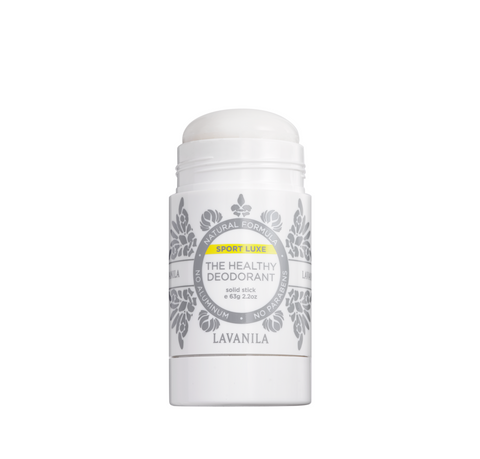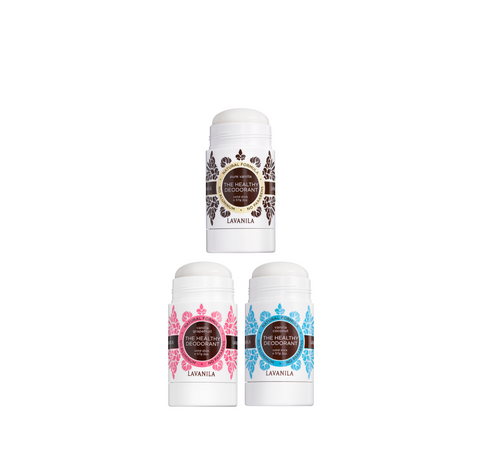Many people wonder whether the products they use every day could be affecting their health. One common question that keeps surfacing is whether antiperspirants are bad for you. For years, personal care routines have included daily use of antiperspirants to manage sweat and odor, but questions about their long-term safety are increasingly on the minds of consumers. Understanding what these products contain and how they work can help you make informed choices and explore natural alternatives that align with a clean, wellness-focused lifestyle.
Modern clean beauty advocates, including those at Lavanila, emphasize products formulated with natural ingredients that minimize exposure to potentially harmful chemicals. By examining the ingredients, research, and user experiences, we can unpack the concerns surrounding antiperspirants and explore how choices impact overall skin health. Many ask, are antiperspirants bad for you, and exploring natural options can provide clarity and confidence in daily routines.
15% Discount on Your First Order
Subscribe for exclusive sales and promo codes
- Enjoy a 15% discount on your first purchase
- Be the first to know about our special sales and promotions
- Receive unique promo codes available only to our subscribers
Are Antiperspirants Bad for You? Understanding the Concerns
People often ask whether antiperspirants are bad for you, especially when considering long-term use. While antiperspirants are designed to keep you dry, their chemical components have prompted scrutiny and raised questions about safety. Let’s explore the key areas of concern.
How Antiperspirants Work and What They Contain
Antiperspirants reduce sweating by temporarily blocking sweat glands. The primary active ingredients are aluminum-based compounds, such as aluminum chloride, aluminum zirconium, or aluminum chlorohydrate. These compounds form a gel-like barrier over the sweat glands, limiting moisture from reaching the skin's surface.
Other common components may include:
-
Fragrance agents, which mask odor but can irritate sensitive skin.
-
Preservatives, added to prevent bacterial growth and prolong shelf life.
-
Soothing ingredients in some formulas, though not all antiperspirants focus on skin nourishment.
While these ingredients serve functional purposes, the questions about their effects on skin and overall health have led many to wonder are antiperspirants bad for you and seek safer, natural alternatives that prioritize clean formulations.
Common Health Questions Around Antiperspirants
Concerns often focus on three areas:
-
Long-term exposure to aluminum compounds.
-
Hormonal disruption or interference.
-
Possible links to chronic health conditions, including cancer.
Many consumers are turning to natural deodorants as a proactive measure, valuing formulations that rely on botanical extracts and essential oils rather than synthetic chemicals. Lavanila’s collection emphasizes plant-based ingredients to neutralize odor without relying on aluminum, which is often cited when people ask are antiperspirants bad for you.
Aluminum Compounds and Skin Health
Aluminum-based compounds are at the heart of the antiperspirant debate. Understanding their mechanism and potential skin effects is essential for anyone asking whether antiperspirants are bad for you.
How Aluminum Blocks Sweat and Its Effects on Skin
Aluminum compounds work by temporarily plugging sweat glands. This blockage is effective in controlling underarm moisture, but it can also impact the skin in several ways:
-
Occlusion can trap bacteria, sometimes leading to minor skin irritation.
-
Sensitive skin may react with redness, itching, or small bumps.
-
Repeated application over time can potentially alter the natural microbiome of underarm skin.
It’s worth noting that these effects vary among individuals, and many experience no noticeable irritation. However, for those with delicate skin, questions like are antiperspirants bad for you can guide the choice to try aluminum-free alternatives.
 Lavanila’s aloe-based mists offer a clean, gentle way to adapt with the seasons while nourishing your hair and uplifting your senses all year long.
Lavanila’s aloe-based mists offer a clean, gentle way to adapt with the seasons while nourishing your hair and uplifting your senses all year long.
What Research Says About Aluminum and Long-Term Use
Research into aluminum exposure from antiperspirants has been ongoing for decades. While aluminum can be absorbed in small amounts through the skin, studies generally show that typical daily use of antiperspirants is considered safe for most people. That said, some areas remain under scientific scrutiny:
-
Long-term systemic absorption and potential accumulation.
-
The interaction between aluminum and other substances in the body.
-
Effects on skin aging or chronic irritation in sensitive individuals.
For those concerned about aluminum exposure, switching to natural, aluminum-free deodorants offers a practical alternative. Lavanila’s products, formulated without aluminum, provide odor protection while maintaining the skin’s natural balance. Many users decide to transition after asking themselves are antiperspirants bad for you and considering the long-term benefits of natural options.
Potential Links Between Antiperspirants and Health Conditions
So, are antiperspirants bad for you? This question often arises in the context of serious health concerns. Let’s separate myths from evidence and look at what science currently supports.
Myths vs. Evidence on Cancer Risk
For years, rumors circulated about a link between antiperspirant use and breast cancer. Concerns focused on aluminum’s role in potentially promoting cancerous changes in breast tissue. However, comprehensive studies have not established a direct causal relationship. Key points include:
-
Most research finds no statistically significant increase in breast cancer risk associated with antiperspirant use.
-
The notion that underarm application near breast tissue leads to harmful exposure is largely speculative.
-
Health experts emphasize lifestyle, genetics, and other environmental factors as more critical risk determinants.
While these findings may reassure many users, those seeking additional peace of mind often explore clean, aluminum-free deodorants, aligning with a holistic approach to body care.
Antiperspirants and Hormonal Impact
Another concern is the possibility of hormonal disruption. Some studies have suggested that aluminum compounds could mimic or interfere with estrogen activity. Yet, clinical evidence remains inconclusive, and most mainstream research does not confirm a significant hormonal impact from typical antiperspirant use.
For consumers interested in reducing chemical exposure, natural deodorants offer a compelling alternative. Botanical ingredients in these products support odor control without introducing potential hormonal irritants.
Skin Irritation and Allergic Reactions
Even if long-term systemic risks are low, skin reactions are a practical reason why many question whether antiperspirants are bad for you.
Why Some People Experience Redness or Itching
Skin irritation can result from:
-
Fragrances or preservatives that provoke allergic responses.
-
Repeated application in areas with sensitive skin.
-
Interaction with clothing that rubs or traps moisture under blocked sweat glands.
Such reactions are more common in people with naturally sensitive skin or a history of dermatitis. Recognizing these early signs can help answer are antiperspirants bad for you in the context of personal comfort and skin health.
Recognizing Sensitivity to Conventional Deodorants
Common indicators of sensitivity include:
-
Persistent redness or rash in the underarm area.
-
Itching or burning sensations shortly after application.
-
Small bumps or flare-ups that appear and disappear with product use.
Choosing products formulated for sensitive skin—such as aluminum-free, fragrance-conscious options—can minimize reactions. Lavanila’s natural deodorants, for instance, are crafted with clean ingredients designed to soothe skin while addressing odor, making them suitable for individuals with mild sensitivities.
Lifestyle Factors That Influence Sweat and Odor
The impact of antiperspirants extends beyond the product itself. Sweat and odor are influenced by multiple lifestyle factors, which may determine whether antiperspirants are perceived as necessary or harmful.
Diet, Activity Level, and Climate Considerations
What you eat, how much you move, and where you live can all affect sweating:
-
Diets rich in spices, garlic, or caffeine may increase sweat production or body odor.
-
High-intensity exercise elevates body temperature and triggers more frequent perspiration.
-
Warm or humid climates naturally lead to more underarm moisture.
Understanding these factors helps consumers decide how often to apply antiperspirants—or whether natural deodorants could suffice—based on personal routines and environmental conditions.
Stress and Hormonal Changes
Emotional stress and hormonal fluctuations also contribute to sweat and odor:
-
Stress-induced sweat contains more protein and may smell stronger.
-
Hormonal changes, such as those related to puberty, menstruation, or menopause, can increase sweat volume.
-
Managing stress through lifestyle strategies can reduce reliance on strong antiperspirants.
By considering these influences, individuals can adopt a balanced approach that combines lifestyle habits with personal care products, including natural deodorants that prioritize skin health and wellness.
Natural Alternatives to Traditional Antiperspirants
For people asking whether antiperspirants are bad for you, natural alternatives offer a thoughtful and health-conscious option. Unlike conventional antiperspirants, which block sweat, natural deodorants focus on odor control while maintaining the skin’s natural balance. Many users find that these products provide a refreshing, long-lasting solution that respects the body’s natural processes.
Natural deodorants rely on plant-based powders and botanical extracts rather than aluminum or harsh chemical blockers. Ingredients like arrowroot powder, baking soda, and kaolin clay help absorb moisture, while essential oils such as lavender, rosemary, and tea tree combat odor-causing bacteria. Oils like coconut, shea butter, or jojoba moisturize and soothe the skin, preventing irritation or dryness.
For example, Lavanila’s Vanilla Coconut deodorant combines plant-derived powders with naturally soothing oils, offering long-lasting freshness without interfering with the skin’s normal sweat function. These types of products are designed for people who care about both performance and clean formulations. For those who wonder whether antiperspirants are bad for you, natural deodorants provide a compelling alternative that prioritizes skin health while still allowing you to feel confident in your daily activities.

cruelty free

paraben free

phthalate free

all natural fragrance
How Natural Deodorants Support Skin Health
Natural deodorants offer benefits beyond odor control. Unlike traditional antiperspirants that block sweat and may trap bacteria, plant-based formulas encourage the skin to function naturally. Some of the ways these products support skin health include:
-
Gentle odor neutralization: Powders such as arrowroot and kaolin clay absorb moisture and limit bacteria growth without interfering with sweat production.
-
Soothing botanicals: Aloe vera, shea butter, and coconut oil provide hydration, reduce irritation, and keep sensitive underarm skin healthy.
-
Balanced microbiome: By avoiding chemical sweat blockers, natural deodorants allow the skin’s microbial ecosystem to remain balanced, which is essential for managing odor naturally.
-
Reduced chemical exposure: Natural deodorants typically avoid synthetic fragrances and preservatives, which are common irritants in conventional products.
Users often notice that after a few weeks of consistent use, underarms feel softer, less irritated, and healthier overall. Incorporating a natural deodorant into your daily routine is not just a cosmetic choice—it’s a step toward nurturing skin health while avoiding unnecessary chemicals.
Why Plant-Based Formulas Can Be Gentle and Effective
A common misconception is that natural deodorants are not as effective as conventional antiperspirants. In reality, plant-based formulations provide reliable odor control while being gentle on the skin. Here’s why they work:
-
Botanical antibacterial agents: Essential oils such as tea tree, rosemary, and lavender actively inhibit odor-causing bacteria. These natural compounds are effective without harsh chemical interference.
-
Moisture-absorbing powders: Arrowroot, kaolin, and baking soda help control wetness, making the underarm feel fresh even during high-intensity activities.
-
Gentle on sensitive skin: With fewer synthetic ingredients, plant-based deodorants reduce irritation and minimize redness, itching, or bumps that some people experience with conventional antiperspirants.
Natural deodorants work by supporting the body’s normal processes instead of blocking them. This gentle approach can be particularly appealing for those who ask whether antiperspirants are bad for you, as it balances comfort, odor management, and skin health.
Choosing the Right Natural Deodorant for You
Switching to natural deodorants requires careful consideration of your skin type, lifestyle, and activity level. Selecting a product that matches your needs ensures effective odor control while reducing the risk of irritation or discomfort.
What Ingredients to Look For and Avoid
Knowing which ingredients to choose or avoid is crucial when exploring natural deodorants. Here’s a detailed guide:
Look for:
-
Moisture-absorbing powders: Arrowroot, kaolin, or cornstarch absorb sweat without blocking glands.
-
Essential oils: Lavender, chamomile, or citrus oils provide antibacterial properties and pleasant natural scent.
-
Soothing oils: Coconut oil, shea butter, and jojoba oil help hydrate and protect sensitive skin.
-
Natural fragrance sources: Plant-derived fragrances reduce the risk of irritation or allergic reactions.
Avoid:
-
High concentrations of baking soda if prone to irritation, as it can cause redness or stinging.
-
Synthetic preservatives, parabens, or phthalates that may be unnecessary or harmful.
-
Aluminum compounds or other chemical sweat blockers that interfere with natural sweat function.
Choosing the right ingredients ensures your deodorant works effectively while maintaining skin health and respecting your body’s natural balance.
Matching Formulas to Your Lifestyle and Skin Type
Different lifestyles and skin conditions may call for specific natural deodorant formulations:
-
For active lifestyles: Individuals who exercise regularly or have physically demanding routines may need deodorants with higher absorbent powder content and stronger antibacterial botanicals.
-
For sensitive skin: Cream or stick formulas with minimal baking soda and extra moisturizing oils can prevent irritation and provide smooth application.
-
For different climates: In humid or hot environments, deodorants with greater moisture absorption help reduce underarm wetness and discomfort.
-
For travel or long days: Compact, portable natural deodorants are convenient for touch-ups, ensuring freshness throughout extended periods.
Matching your choice to your personal routine allows you to experience the full benefits of natural deodorants while transitioning away from conventional antiperspirants safely.
How to Transition From Antiperspirant to Natural Deodorant
Transitioning to natural deodorants often involves an adjustment period, as the body recalibrates sweat and odor regulation. Understanding the process can help minimize discomfort and set realistic expectations.
Steps to Minimize Adjustment Periods
During the first few weeks of switching, some individuals may notice stronger odor or increased sweat. To ease this adjustment:
-
Gradual reduction: Reduce the use of antiperspirants over several days while introducing natural deodorants.
-
Extra cleansing: Gentle exfoliation or washing helps remove residual aluminum from previous antiperspirants and dead skin cells.
-
Frequent application: Natural deodorants may require reapplication, especially during the first two to three weeks, to manage odor effectively.
-
Hydration and diet: Staying well-hydrated and avoiding foods that exacerbate body odor (e.g., spicy or heavily processed foods) can reduce odor intensity.
-
Patience: The body may take up to four weeks to fully adapt to natural sweat processes. Consistency is key to a smooth transition.
By following these steps, users can minimize discomfort and experience long-term benefits in underarm health and comfort.
Tips for Maintaining Freshness Without Aluminum
Even without chemical blockers, natural deodorants can provide reliable freshness when paired with supportive habits:
-
Breathable clothing: Choosing fabrics like cotton or moisture-wicking materials helps reduce trapped sweat.
-
Stay hydrated: Adequate water intake supports natural temperature and sweat regulation.
-
Reapply when necessary: Natural deodorants may require occasional touch-ups during extended or active days.
-
Daily hygiene: Gentle cleansing maintains a clean surface and reduces odor-causing bacteria.
-
Lifestyle adjustments: Managing stress, diet, and activity level can further support effective odor control.
By combining these habits with a high-quality natural deodorant, users can confidently maintain freshness while avoiding chemical exposure.
Addressing Frequently Asked Questions About Antiperspirants and Health
Even after adopting natural alternatives, people often have questions about daily use, transition timelines, and skin reactions. Answering these can help clarify concerns for those questioning whether antiperspirants are bad for you.
Are Antiperspirants Bad For You, If You Use Them Every Day?
Research indicates that daily use of conventional aluminum-based antiperspirants is generally safe for most people. However, minor skin irritation, redness, or bumps can occur, especially for individuals with sensitive skin. For those concerned about long-term chemical exposure, natural deodorants provide a safe, skin-friendly alternative that supports odor control without interfering with sweat glands.
How Long Does It Take to Notice a Difference After Switching to Natural?
The adjustment timeline can vary widely:
-
Week 1–2: Sweat and odor may feel stronger as the body adapts to natural sweat production.
-
Week 3–4: Sweat regulation normalizes, and natural deodorants begin effectively controlling odor.
-
After 4 weeks: Users often report reduced irritation, improved underarm comfort, and reliable odor protection.
Consistency during this transition ensures the body fully adapts, and long-term results often include healthier, softer underarm skin.
Common Misconceptions About Natural Deodorants
Switching to natural deodorants often prompts questions and skepticism. Many people still wonder whether natural alternatives can perform as effectively as traditional antiperspirants. Addressing these misconceptions is key for anyone considering a cleaner, skin-friendly approach to underarm care.
Does Natural Mean Less Effective?
One widespread misconception is that natural deodorants are inherently less effective. The truth is that natural products focus on odor control rather than sweat suppression. This distinction is important because sweat itself is not harmful—it is a natural bodily function. Natural deodorants work by neutralizing odor-causing bacteria with botanical ingredients while allowing the skin to breathe.
For example, Lavanila deodorants use plant-based powders and essential oils to provide long-lasting freshness without relying on aluminum compounds. Users often find that after an adjustment period, natural formulas are just as effective for everyday activities, workouts, or long workdays. The perceived difference in effectiveness often comes from the body’s adaptation period rather than the deodorant itself.
Understanding Sweat vs. Odor Control
Another common misunderstanding is conflating sweat reduction with odor control. Antiperspirants physically block sweat glands, while natural deodorants do not interfere with sweating. Here’s why this distinction matters:
-
Sweat is natural: It regulates body temperature and eliminates toxins, and blocking it repeatedly may not be ideal for skin health.
-
Odor is preventable: By targeting odor-causing bacteria rather than sweat, natural deodorants address the issue that matters most—how you smell.
-
Skin-friendly: Allowing sweat to flow naturally reduces irritation and supports a balanced microbiome, which can improve long-term skin health.
Understanding this difference helps users realize that effectiveness does not always mean suppressing sweat. For people asking whether antiperspirants are bad for you, this distinction is crucial when evaluating natural alternatives.
The Lavanila Approach to Safe, Gentle Underarm Care
Lavanila emphasizes formulations that are safe, clean, and effective. Their natural deodorants combine skin-friendly ingredients with odor-fighting botanicals, supporting overall underarm health while providing reliable freshness.
How Lavanila Formulas Support Skin Naturally
Lavanila’s approach prioritizes gentle, skin-nurturing ingredients:
-
Soothing botanicals: Aloe, shea butter, and coconut oil help maintain hydration and reduce irritation.
-
Odor-neutralizing powders: Plant-derived powders like arrowroot help control moisture and bacteria without blocking sweat.
-
Natural scents: Essential oils offer a pleasant fragrance while avoiding synthetic perfumes that can trigger sensitivity.
By focusing on skin support rather than chemical suppression, Lavanila products help maintain natural sweat and odor balance, making them ideal for individuals concerned about the long-term effects of antiperspirants.
Why Clean, Non-Toxic Ingredients Make a Difference
Non-toxic, clean ingredients make a meaningful difference in both skin health and overall wellness:
-
Reduced irritation: Avoiding synthetic chemicals, parabens, and aluminum decreases the likelihood of redness, bumps, or itching.
-
Microbiome-friendly: Natural deodorants maintain the balance of healthy bacteria under the arms, which helps control odor naturally.
-
Holistic wellness: Using clean, safe products aligns with a lifestyle that prioritizes health, sustainability, and mindful self-care.
Lavanila’s formulations are designed to meet these criteria, making natural deodorants a sustainable and skin-safe choice for daily use.
Everyday Habits That Complement Natural Deodorant Use
Adopting a natural deodorant is most effective when combined with habits that support underarm health. These routines can enhance freshness, reduce odor, and make the transition smoother.
Skincare Routines That Promote Underarm Health
Maintaining clean, healthy underarms complements the benefits of natural deodorants:
-
Regular cleansing: Gentle washing removes odor-causing bacteria and sweat without over-stripping moisture.
-
Exfoliation: Occasional exfoliation prevents buildup of dead skin cells, helping natural deodorants work more effectively.
-
Moisturization: Using skin-nourishing oils or creams ensures the underarm area stays soft and resilient.
By incorporating these steps, users can maximize the effectiveness of natural deodorants while reducing irritation and discomfort.
Clothing and Lifestyle Tips to Reduce Odor
Lifestyle choices also play a role in managing sweat and odor:
-
Breathable fabrics: Cotton, bamboo, or moisture-wicking materials allow airflow, helping the skin remain dry and comfortable.
-
Layering strategically: Avoid tight-fitting layers that trap heat and moisture, which can exacerbate odor.
-
Hydration and diet: Staying hydrated and reducing consumption of odor-intensifying foods like garlic or caffeine can support natural odor control.
-
Stress management: Since stress can trigger sweat, mindfulness, yoga, or light exercise can help minimize overactive sweat response.
These simple habits enhance natural deodorant performance and promote long-term underarm health.
Case Studies and Testimonials
Real-world experiences often highlight the tangible benefits of switching to natural deodorants. Hearing how others navigated the transition can help address concerns for those questioning whether antiperspirants are bad for you.
Real Experiences with Natural Deodorants
Users frequently report initial adjustment phases where sweat and odor feel stronger. Over time, they notice:
-
Reduced irritation and softer underarm skin.
-
Reliable odor control during daily activities.
-
A sense of confidence without chemical blockers.
For example, many who transitioned to Lavanila’s Vanilla Coconut or Pure Vanilla deodorants noted that after several weeks, the products were effective even during workouts or long workdays.
How Switching Impacts Skin and Confidence
Switching from antiperspirants to natural deodorants can positively impact both skin and self-perception:
-
Improved comfort: Less irritation and fewer rashes lead to better underarm comfort.
-
Long-term skin health: Skin maintains its natural microbiome and moisture balance.
-
Confidence boost: Knowing you are using safe, non-toxic ingredients reinforces a sense of wellness and self-care.
These outcomes often encourage users to commit to natural deodorants as part of a sustainable, skin-friendly routine.
Conclusion: Making the Choice for Healthy Underarms
Understanding whether antiperspirants are bad for you requires evaluating ingredients, long-term effects, and personal skin needs. Natural deodorants provide an effective, skin-supporting alternative while aligning with clean beauty values.
Key Takeaways About Antiperspirants and Skin Health
-
Antiperspirants block sweat but may irritate sensitive skin over time.
-
Aluminum exposure remains a common concern, though evidence of major health risks is limited.
-
Natural deodorants focus on odor control, support the skin’s microbiome, and use non-toxic, plant-based ingredients.
-
Transitioning requires patience, but long-term benefits include healthier skin, reduced irritation, and effective odor management.
Explore Lavanila’s Natural Deodorant Collection for Safe, Gentle Protection
For those ready to make the switch, Lavanila offers a full collection of natural deodorants designed to protect, soothe, and refresh:
Lavanila's Natural Deodorant Collection offers a diverse range of scents, each crafted to provide safe, gentle, and effective odor protection. Here's an overview of some standout options:
Vanilla Lavender
A soothing blend of Spanish lavender and soft vanilla, this deodorant offers a calming floral scent. It's designed to deliver long-lasting odor protection without the use of aluminum or parabens. Ideal for those seeking a gentle and fresh fragrance.
Vanilla Eucalyptus
Combining the antibacterial properties of eucalyptus with the softness of vanilla, this deodorant features a probiotic formula that fights odor effectively. The eucalyptus provides a refreshing and invigorating scent, making it a great choice for daily use.
Vanilla Grapefruit
This deodorant offers an uplifting citrus blend of pink grapefruit, zesty lime, and soft vanilla. The combination delivers a fresh and energizing scent, perfect for those who enjoy a fruity and vibrant fragrance.
Vanilla Passion Fruit
A tropical scent featuring passion fruit, guava, and peach nectar, balanced with a warm base of sandalwood and Madagascar vanilla. This limited edition fragrance provides an exotic and sweet aroma, ideal for those looking for a unique and indulgent scent.
Vanilla Blackberry
A rich and fruity deodorant that blends ripe blackberry, juicy raspberry, velvet iris, and warm Madagascar vanilla. This seductive fragrance is designed to provide long-lasting odor protection while offering a sweet and enticing scent.
In addition to these, Lavanila offers other scents like Vanilla Coconut and Vanilla + Water, each formulated to cater to different preferences and needs. All products are free from aluminum, parabens, and other harsh chemicals, ensuring a safe and natural deodorant experience.
Exploring these products allows you to maintain confidence, comfort, and wellness in daily life while avoiding unnecessary chemical exposure.
 Clean and uncomplicated
Clean and uncomplicated

 Featured In
Featured In







vegan

gentle formula

100% recylable

aluminum free
